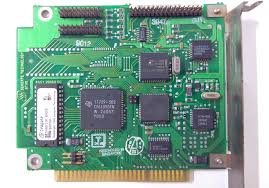How Drive Controllers function in Military Manufacturing
In the high-stakes realm of military manufacturing, precision, reliability, and advanced technological integration are paramount. Drive controllers play a crucial role in this sector by ensuring that the various machines and systems used in the production of military equipment operate with utmost precision and efficiency. These specialized devices control the speed, torque, and position of electric motors, making them essential for applications ranging from vehicle assembly to the production of sophisticated weaponry and communication devices. Today we’ll delve into the significance of drive controllers in military manufacturing, exploring their functionalities, applications, and the technological advancements that enhance their effectiveness.
Essential Functions of Drive Controllers
Drive controllers, such as the dkcxx.3-040-7-fw, are sophisticated pieces of electronic equipment designed to precisely manage the operation of motors used in manufacturing processes. In the context of military manufacturing, these controllers must meet exceedingly high standards of accuracy and reliability, given the critical nature of the products being manufactured. Here are some of the essential functions of drive controllers in this sector:
- Precision Control: Drive controllers regulate the motion of motors with high precision, which is crucial for tasks that require exact movements, such as the positioning of components in aerospace assembly or the alignment of optical elements in surveillance equipment.
- Speed Regulation: They adjust the speed of motors to match specific operational requirements, ensuring that production processes like conveyor belts or robotic arms operate at optimal speeds, thus maintaining efficiency and reducing wear and tear.
- Torque Adjustment: Drive controllers modulate the torque output of motors to prevent damage to sensitive components during assembly, which is particularly important in the manufacture of intricate electronic devices used in military applications.
Applications of Drive Controllers in Military Manufacturing
Drive controllers are integral to several key areas of military manufacturing, including:
- Vehicle Assembly: In the assembly of military vehicles, whether they are tanks, aircraft, or naval ships, drive controllers ensure that the assembly lines are running smoothly. They control the automated systems that install critical components, manage paint shops, and oversee the intricate installation of wiring and electronics.
- Weapon Systems Production: Precision in the manufacturing of weapon systems cannot be compromised. Drive controllers manage the equipment used in the fabrication of everything from small arms to advanced missile systems, ensuring components meet exact specifications for reliable operation.
- Communication and Surveillance Equipment: Military effectiveness relies heavily on communication and surveillance systems. Drive controllers play a pivotal role in the production of these technologies, where precision and reliability are crucial for the functionality of radar systems, drones, and secure communication networks.
Technological Advancements Enhancing Drive Controllers
The evolution of drive controller technology has been marked by several advancements that significantly enhance their application in military manufacturing:
- Integration with Industrial Internet of Things (IIoT): Modern drive controllers are often integrated with IIoT platforms, allowing for real-time monitoring and control of manufacturing processes. This connectivity not only enhances the precision but also enables predictive maintenance, reducing downtime and increasing productivity.
- Advanced Algorithms: The incorporation of sophisticated algorithms allows drive controllers to perform complex tasks autonomously. These algorithms can adapt to changes in load or environmental conditions, ensuring consistent performance without manual intervention.
- Enhanced Durability and Security: Given the demanding environments of military manufacturing, drive controllers are designed to withstand extreme conditions, from high temperatures to electromagnetic disturbances. Additionally, cybersecurity measures are increasingly important to protect against potential sabotage or data theft.
- Customization and Scalability: Drive controllers used in military manufacturing are highly customizable to meet specific operational needs. They are also scalable, capable of being expanded or reconfigured as production requirements evolve or as new technologies are developed.
Best Practices for Implementing Drive Controllers
Implementing drive controllers in military manufacturing involves several best practices to ensure optimal performance:
- Rigorous Testing: Drive controllers should undergo rigorous testing under conditions that simulate actual manufacturing environments to verify their reliability and precision.
- Continuous Training: Personnel should receive ongoing training on the latest drive controller technologies and operational procedures to maximize the potential of these systems.
- Security Protocols: Robust security protocols must be in place to protect drive controller systems from cyber threats, ensuring that all networked devices are secure and that data integrity is maintained.
- Regular Maintenance: Scheduled maintenance and regular updates to drive controller software and hardware are essential to maintain functionality and incorporate advancements in technology.
Conclusion
Drive controllers are critical components in the arsenal of military manufacturing and manufacturing in general, providing the precision, control, and reliability needed to produce sophisticated military equipment. As technology advances, the capabilities of these controllers continue to expand, further enhancing their importance in this high-stakes field. The ongoing development and refinement of drive controller technology will continue to play a pivotal role in maintaining and advancing the effectiveness and readiness of military forces around the world.

